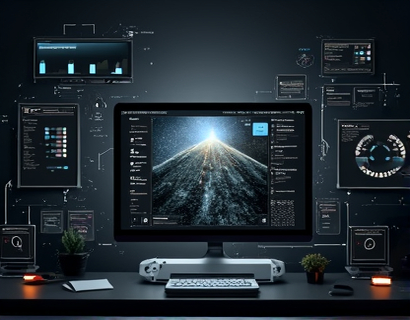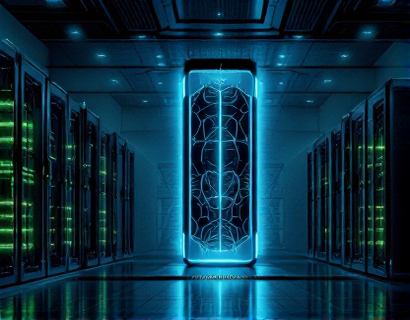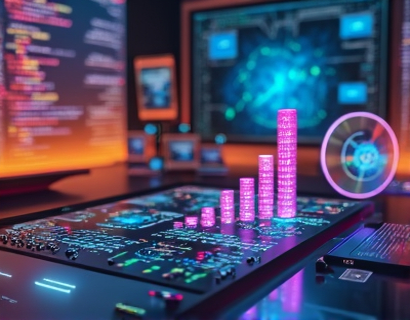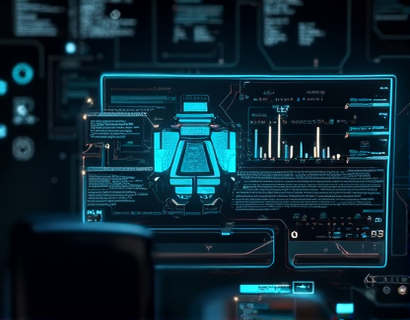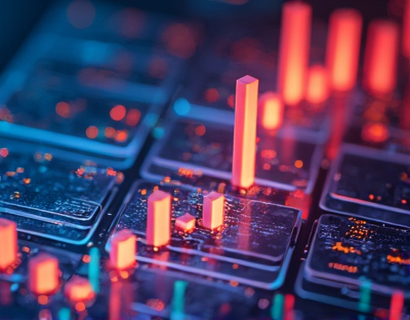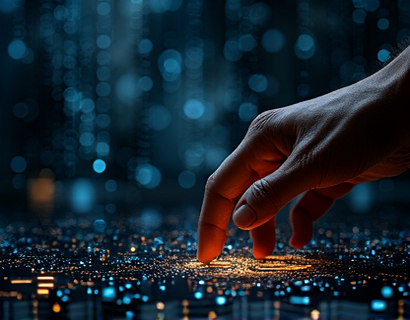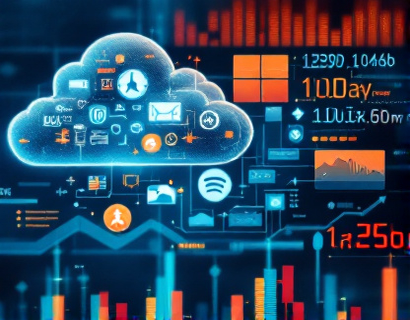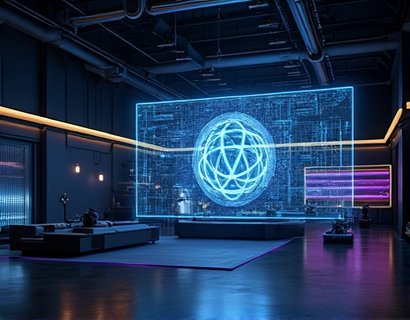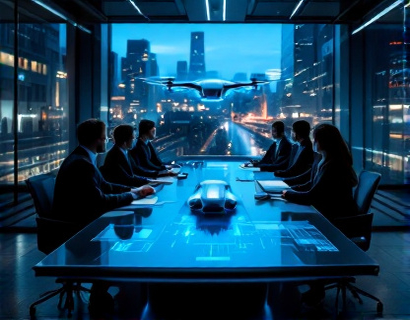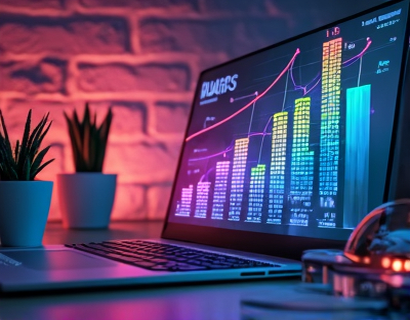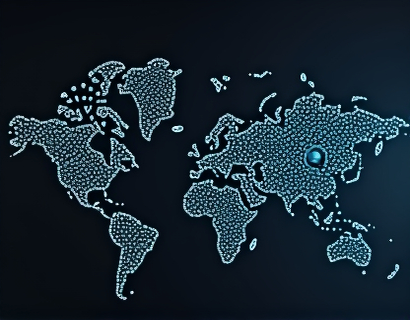Decentralized AI and Crypto: Revolutionizing Ucosystem Applications for Enhanced Digital Experiences
The intersection of decentralized technologies, artificial intelligence, and cryptocurrency is giving rise to a new era of digital applications. This convergence is not just a technological advancement but a paradigm shift in how we interact with digital services. The fusion of these elements is creating what is known as the Ucosystem, a term used to describe the ecosystem built on decentralized applications (dApps) powered by AI and cryptocurrency. This article delves into the transformative impact of this merging, exploring how it enhances user engagement and redefines digital interactions.
The traditional centralized model of digital services has been dominated by a few large corporations, often leading to issues such as data privacy concerns, single points of failure, and limited user control. Decentralized applications, on the other hand, distribute control across a network of nodes, ensuring transparency, security, and user sovereignty. When AI is integrated into these decentralized systems, the potential for innovation and user empowerment becomes immense.
Enhancing User Engagement through Decentralized AI
One of the key benefits of decentralized AI applications is the enhanced user engagement they offer. Traditional AI-driven services often require users to trust a central authority with their data, which can be a barrier to adoption. In a decentralized model, users maintain control over their data, choosing what to share and with whom. This trust-building aspect significantly boosts user engagement and loyalty.
Decentralized AI applications leverage blockchain technology to create transparent and verifiable data exchanges. Smart contracts automate and enforce agreements, reducing the need for intermediaries and ensuring that user data is handled according to predefined rules. This transparency not only builds trust but also encourages more users to participate actively in the ecosystem.
Redefining Interactions with AI-Powered dApps
The integration of AI into decentralized applications redefines user interactions in several ways. AI algorithms can analyze vast amounts of data to provide personalized experiences, recommendations, and insights. In a decentralized setting, this personalization is achieved without compromising user privacy, as data remains under the user's control.
For instance, in decentralized finance (DeFi) platforms, AI can optimize trading strategies, predict market trends, and manage risk with high accuracy. Users can benefit from these AI-driven insights while maintaining full ownership of their assets. This synergy between AI and decentralization empowers users to make informed decisions and take control of their financial lives.
Security and Privacy in Decentralized AI
Security and privacy are paramount in the digital age, and decentralized AI applications address these concerns effectively. By distributing data across a network, the risk of a single point of failure is minimized. Additionally, cryptographic techniques ensure that data is encrypted and accessible only to authorized parties.
Zero-knowledge proofs, a cryptographic method, allow users to prove the validity of a statement without revealing the underlying data. This technology is particularly useful in decentralized AI, where sensitive information needs to be processed without exposing it to potential threats. The combination of decentralization and advanced cryptographic techniques provides a robust framework for secure and private AI applications.
Scalability and Efficiency
Scalability is a significant challenge for many decentralized applications. However, advancements in blockchain technology and AI are addressing these issues. Layer 2 solutions, such as sidechains and state channels, enable faster and more cost-effective transactions. These solutions offload some of the processing from the main blockchain, reducing congestion and improving performance.
AI plays a crucial role in optimizing the efficiency of decentralized systems. Machine learning algorithms can predict network traffic, optimize resource allocation, and automate maintenance tasks. This intelligent management ensures that decentralized applications remain scalable and responsive, even as the user base grows.
Use Cases of Decentralized AI and Crypto
The potential applications of decentralized AI and crypto are vast and varied. Here are a few notable use cases that highlight the transformative impact of this technology:
- Decentralized Social Media: Platforms like Mastodon and Diaspora use blockchain to create decentralized social networks where users have control over their data and interactions. AI can enhance these platforms by providing personalized content feeds, moderating content, and ensuring a safe and engaging environment.
- Supply Chain Management: Decentralized AI can improve transparency and efficiency in supply chains. By tracking products from origin to destination using blockchain, companies can ensure authenticity and compliance. AI algorithms can predict demand, optimize inventory, and identify potential bottlenecks, leading to more streamlined operations.
- Healthcare: In the healthcare sector, decentralized AI can securely share patient data across different providers while maintaining privacy. AI-driven diagnostics and treatment recommendations can be integrated into decentralized health platforms, providing patients with better care and more control over their health information.
- Identity Verification: Decentralized identity solutions use blockchain to give users control over their personal information. AI can enhance these systems by verifying identities through biometric data and other secure methods, reducing the risk of fraud and enhancing user trust.
Challenges and Future Prospects
Despite the numerous benefits, the development of decentralized AI and crypto applications faces several challenges. One of the primary hurdles is the technical complexity involved in integrating AI with blockchain technologies. Developers need to possess a deep understanding of both domains to create robust and efficient systems.
Another challenge is the regulatory landscape. As decentralized applications operate across borders, navigating varying legal frameworks can be complex. However, as more countries recognize the potential of these technologies, regulatory environments are likely to evolve, providing clearer guidelines and support.
The future of decentralized AI and crypto is promising. As technology advances and more developers join the space, we can expect to see more innovative applications and broader adoption. The synergy between AI, decentralization, and cryptocurrency will continue to drive the creation of more user-centric, secure, and efficient digital services.
In conclusion, the merging of decentralized AI and crypto is revolutionizing the digital landscape. By enhancing user engagement, redefining interactions, and addressing security and privacy concerns, this technology is paving the way for a new era of decentralized applications. As the Ucosystem continues to grow, it offers exciting opportunities for tech-savvy innovators and early adopters to explore and contribute to this transformative space.







